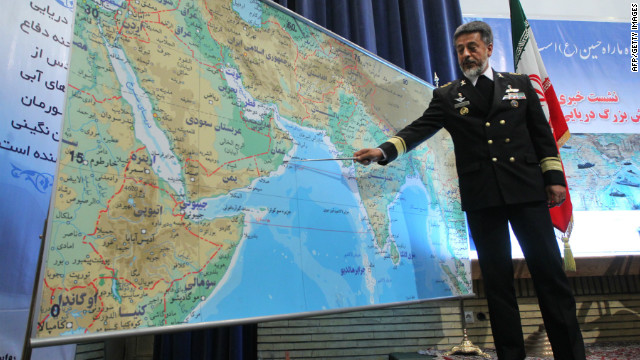 |
| Iran's Navy Commander Adm. Habibollah Sayari speaks to the press last week about Iran's 10-day military exercise |
By Vali Nasr, Special to CNN
Editor's note: Vali Nasr is a professor of international politics at the Fletcher School of Law and Diplomacy of Tufts University and senior fellow in foreign policy at the Brookings Institution.
(CNN) -- Iran has threatened that it will retaliate against the Obama administration's proposed new economic sanctions on Iran's oil exports by blocking the flow of oil from the Persian Gulf. "If sanctions are adopted against Iranian oil," said Iran's Vice President Mohammad Reza Rahimi, "not a drop of oil will pass through the Strait of Hormuz," the narrow waterway at the mouth of the Persian Gulf, which one-fifth of the world's oil supply passes through daily.
To drive the point home, Iran has started a 10-day naval exercise in the Persian Gulf to show off how it could use small speedboats and a barrage of missiles to combat America's naval armada. And the U.S. Navy has responded, in the words of a spokeswoman: "Anyone who threatens to disrupt freedom of navigation in an international strait is clearly outside the community of nations; any disruption will not be tolerated."
This is a significant escalation of tension between the United States and Iran, and the start of a more dangerous phase in the West's attempt to curtail Iran's nuclear program.
The new sanctions are a response to last month's alarming report on Iran's nuclear intentions by the United Nations nuclear watchdog agency, the International Atomic Energy Association. The Obama administration has ruled out military strikes to stop Iran's nuclear program in favor of tougher sanctions, which, once signed by the president, and if fully implemented, would sharply reduce Iran's oil revenue. The administration sees this added pressure on Iran's fragile economy as an effective alternative to military strikes.
More >>
More >>
No hay comentarios:
Publicar un comentario